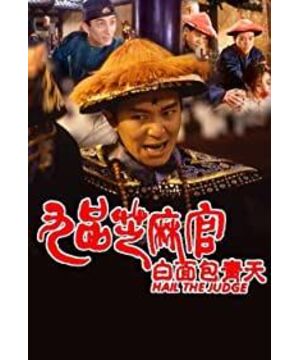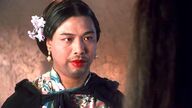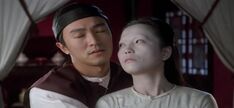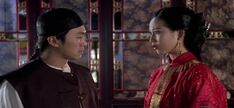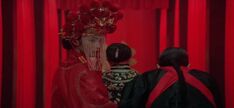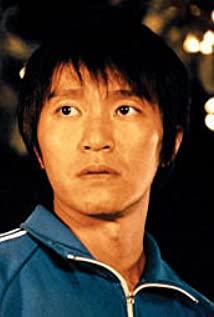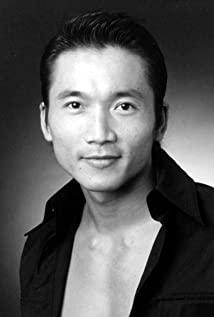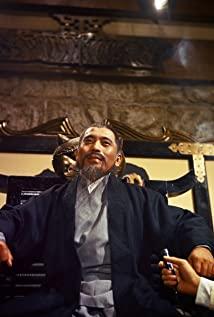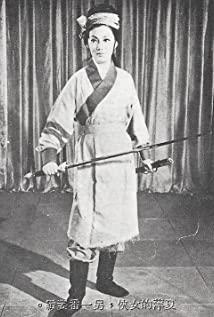The time of this case occurred in July 1873, the 12th year of Tongzhi’s reign, and the snowfall in June.
Location Guangdong
Fang Tangjing, a famous lawyer in the late Qing Dynasty, was born in Chaolian, Waihai, Xinhui, Guangdong (now in Pengjiang District, Jiangmen City). Fang is famous in Cantonese folklore for being cunning and eccentric, colluding with the yamen to oppress the people.
The Guangdong Navy, also known as the Guangdong Navy, was a modernized naval fleet deployed in the South China Sea at the end of the Qing Dynasty. There are many ships, various types and small scales. But still equipped with modern ships. It is impossible to count on foreigners to attack foreigners, arrest pirates, and ensure security.
The Admiral of Guangdong navy is from the first grade and is controlled by the governor. He personally made friends with the ministers in the court, and also recognized Eunuch Li's godfather. It stands to reason that it is easy for military generals to be suspicious of doing this, but in the late Qing Dynasty, there was no such restriction. His son, Chang Wei, is a full second-generation official, and he is also a relative of the Minister of Punishment.
Eunuch Li is the famous Li Lianying.
The minister of the Ministry of Punishment in charge of the national justice and prisons, the Qing Dynasty was a Cong Yipin. The four chiefs of the Public Procuratorate and Judicial Division serve as one. Complaint that he was very suitable. And there is also a relationship between different fathers, so you can be sure. In addition, the biggest doubt in this film is that the admiral who was going to hack Bao Longxing on the charge of stealing corpses and insulting corpses in Guangdong prison arrived in Beijing but did not dare to start. At least he was arrested on the felony of escaping prison and escorted back to Guangdong, but let him be a beggar. The next time he met the emperor, he turned around.
In the film, the Admiral of the Navy and the Minister of Punishment are fabricated.
The emperor (Tongzhi) in the play collapsed in the Hall of Mental Cultivation on the fifth day of the 12th lunar month in the thirteenth year of Tongzhi (January 12, 1875) in the year following the trial of the case, at the age of 19. There is a dramatic ending at the end of the film: the emperor died of flower willow disease, and Bao Longxing threw away the refreshing underwear he got from taking off his dragon pants. It is worth pondering why the emperor is willing to retrial and reverse the case (such as the Yang Naiwu and Xiaobaicai case in the late Qing Dynasty). Although Emperor Tongzhi was already a pro-governor at that time, he did not hold real power.
Accompanying the emperor on a trip was Zai Cheng, the son of Prince Gong Yi, who likes to drink and have fun.
Like flowers, through walls to rob prisoners, according to the laws of the Qing Dynasty, behead prisoners and wait until they are executed. The courage of flowers is really big.
Leibao, the capital to catch fast, is equivalent to the ancient police. The capital went to the local government to handle the case, defiantly, abused lynching, was suspected of murder, and was arrested and filed a case. This is Bao Longxing's first heartwarming case. He was bought off in prison, and he pursued and killed Bao Longxing. Later, he was entrusted by the emperor with the important task of retrying the case and cooperating with the presiding judge.
The magistrate, in the Qing Dynasty, took the magistrate as the official chief of a county.
Bao Longxing, alternate magistrate. As a candidate for the post of magistrate, I felt that he could not have obtained the imperial examination. The father was very famous, and the candidate who donated the official was regarded as the second generation of the official. There are no corresponding rights until the official appointment is granted. When an incumbent official takes leave due to illness, or goes home to visit relatives, or to honor his filial piety, the alternate can temporarily replace the incumbent official to handle affairs with the permission of the superior. Once the incumbent officials return, they will naturally resume their powers and powers, and at the same time, the alternates will lose their rights. The cases or official documents sentenced during their tenure must be reviewed by the incumbent officials. If they disagree, the previous argument can be overturned. During this period, Bao Longxing captured Leibao and tortured him. The case was also tried, but was later overturned by the genuine magistrate. The two cases in Bao Longxing's play that were tried before this case are also quite classic.
Bao Longxing, accused of accepting 4,000 taels from Qi Qin's family, accepting bribes, the source of the huge amount of silver taels of unknown origin, and the crime of stealing and insulting corpses, was arrested and imprisoned. Such as flower robbery, prison break, sin plus two, fight a hundred, exile. The original sentence of death is still in force. So it's not wrong to arrest him.
The imperial ministers, acting on behalf of the emperor, have great powers. Eight palaces patrol, supervise censors, small officials, but the first-rank officials with large tables in the play.
The date of the first trial was July 1873, and the retrial was overturned. The retrial should be March 1874
It is very clear in the case movie that Chang Wei raped Qi Qin and was discovered by his mother. Violent warning of silence, then strangled. Then he was afraid that the matter would be exposed, and he killed thirteen members of the Qi family in a row. However, he was not willing to silence Qi Qin, and only came to Fu to escape.
There are two direct witnesses and multiple circumstantial witnesses in this case, and the physical evidence is complete. According to the laws of the Qing Dynasty, Chang Wei is going to be late.
Absurd Mirror came up with a bad idea: slander Qi Qin's adultery with Laifu, and then poison her husband's family, which happened to be discovered by Chang Wei. The evidence was made later, and is full of loopholes. Originally, I wanted to frame the plaintiff, and took the opportunity to get rid of it. However, in this case, Fang Tang Jing planned improperly, thinking that the case could be easily settled by virtue of his power, but the fact was that it developed in the way he thought. He neglected to figure out that even if Bao Longxing received 4,000 taels, he would have to pursue it to the end. He didn't know whether Bao Longxing's conscience was still alive, Qi Qin's too beautiful hero saved the beauty, or if Fang Tangjing always bullied him, the alternate magistrate, and chose to die. in the end. It is the right way to find a ghost in this case. The robber Jiang Yang got angry and tried to make money. He was then arrested and punished severely. Unfortunately, he committed suicide because of fear of crime.
The rivalry in the hall is also the focus of the film. This case is not easy to be tried after the Eight Houses Patrol. After the confession was interrogated and the body was destroyed, there was only one direct witness, Qi Qin, who was still accused of being the main culprit; the other witnesses were all bought. It is very difficult to reverse the case. Bao Longxing has made a lot of preparations with the skills he has polished in Yixiangyuan. The first is an open trial, with crowds watching, and no black-box operations are allowed again. Second, it is necessary to bring down the circumstantial evidence, arsenic and the source, and the stolen ledger involves illegal evidence collection; to overturn the claim that he died of poisoning, the body has been burned, and there is no way to verify it with a pair of skeletons; reversing the testimony of Da Geng seems to have been beaten violently. Chang Wei, and Chang Wei said that he had no martial arts; flipping Laifu's confession, Qi Qin admired Laifu's literary talent, and he was actually a eunuch who could not read. The psychological warfare of intimidation was used to bring down witnesses. Third, Chang Wei must admit that this is very dramatic. After deliberately scolding Eunuch Li for three or four hours, everyone was very tired, and Chang Wei knelt down without taking a sip of water. How could I have been bullied like this, be tempted to confess, and confessed to me with blood. Only Bao Longxing is in high spirits, involving fatigue tactics, which is not allowed now. In fact, only his confession in the case is not enough to convict him. Besides, he only admitted that he had an affair with the Qi Qin family. The last straw that overwhelmed the camel was Chang Wei when he heard that he was going to guillotine the knife on the spot. Ba Su let go. Chang Wei became furious on the spot, his blood surged and he lost his composure. He resisted law enforcement and was subdued by Lei Bao in court. All four conditions are met. Only those who have complete control of the scene can win this lawsuit. How strong and how difficult is it. Another very important basis for winning the game is that the emperor of this film does not like the party of Guangdong Admiral Li Gonggong, and is trying to find an excuse to rectify them. If Bao Longxing tells Cixi, it is probably useless. Here Lei Bao is still relatively loyal, and Chang Wei was arrested on the spot. If there is no Lei Bao, the suspect would have slipped away. So wash up and sleep early.
The three presiding judges who sheltered and condoned corruption were also sentenced to death (maybe exiled and convicted).
View more about Hail the Judge reviews


